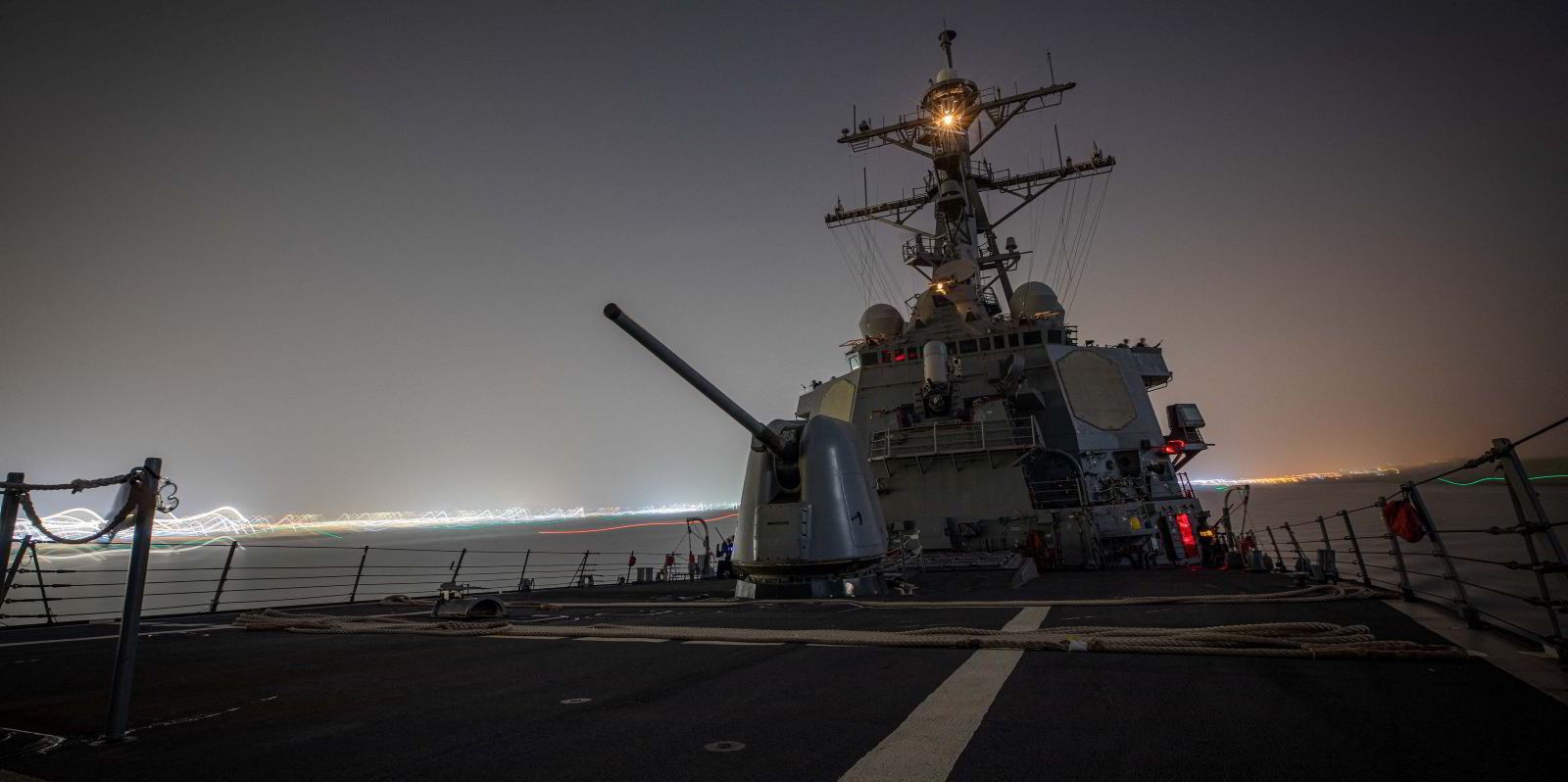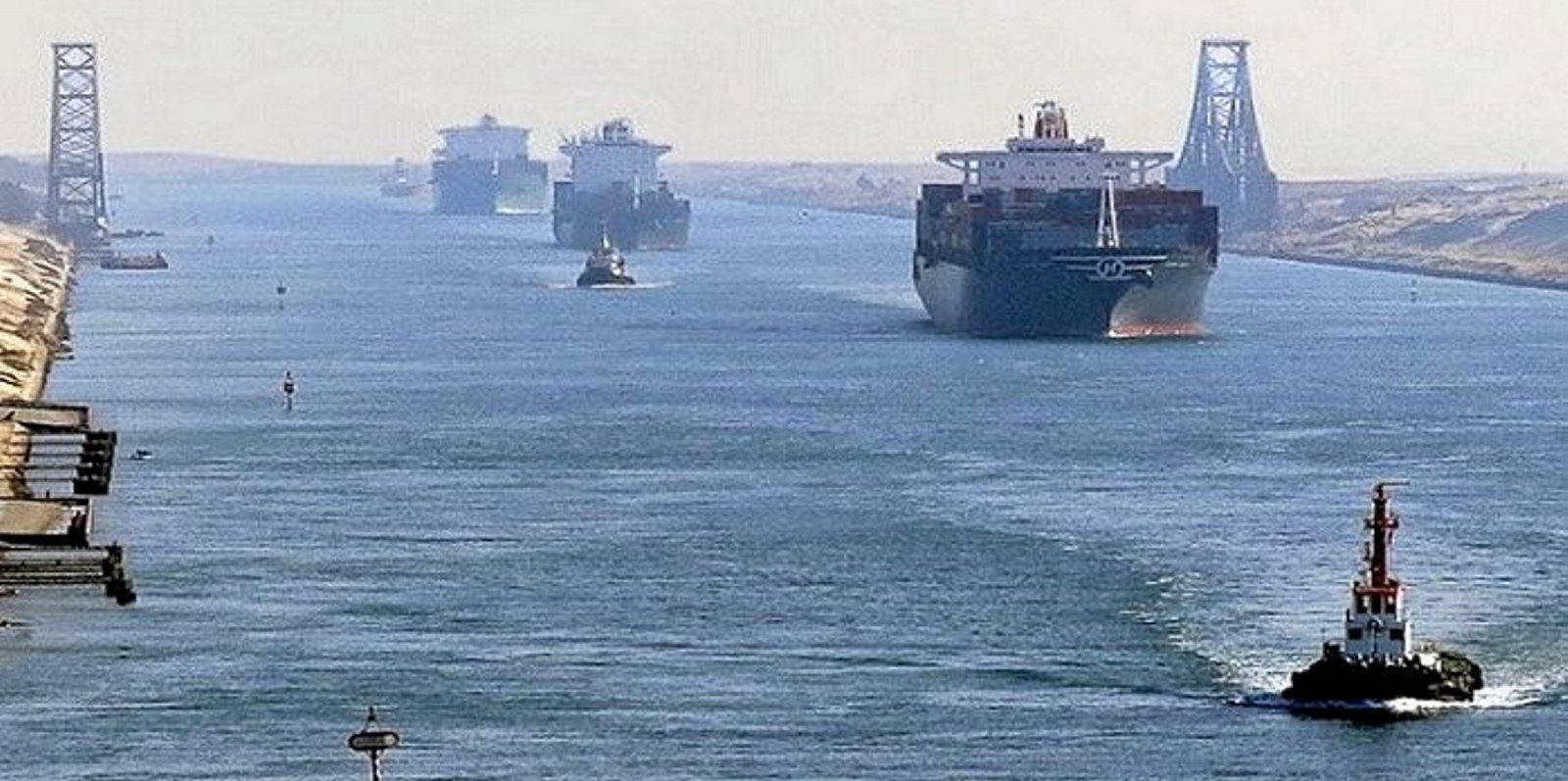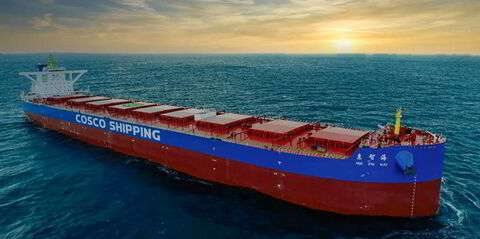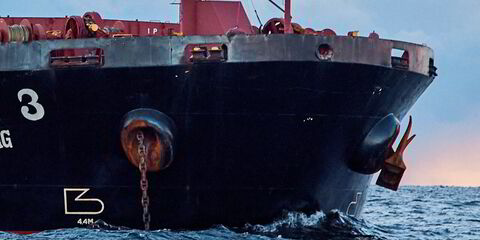Vessels continue to experience threatening approaches from Yemen-based Houthi forces as an alliance of navies prepares to step up the protection of shipping in the region.
United Kingdom Maritime Operations (UKMTO) reported two new incidents later on Monday and early on Tuesday by the Bab-el-Mandeb strait, the southern entrance to the Red Sea.
The first involved an attempted attack 63 nautical miles north-west of Djibouti.
Five small boats containing armed personnel were likely deterred by nearby coalition naval forces, UKMTO said.
The second alert concerned an approach 80 miles north-east of Djibouti.
This involved four small boats described as blue-grey in colour, with four to five people in each, UKMTO said.
The closest craft ran parallel to the ship for half a mile before breaking away.
The master reported no hailing heard and no weapons visible.
Security company Diaplous said it was aware of a potential boarding attempt on Tuesday, 17 miles west of Aden.
A vessel in the vicinity received a VHF communication of another ship “under piracy attack” at the location.
Coalition aircraft responded and searched the area.
“The attack was unsuccessful and the crew is reportedly safe. The nationality of the perpetrators and the motivation behind the attack remain unclear,” Diaplous said.
A third incident was reported later on Tuesday, 80 nautical miles north-east of Djibouti, but no further details were given.
The US late on Monday formally announced taking the lead in a multi-national naval operation to protect the key sea lane from the Gulf of Aden to the Suez Canal.
US Secretary of Defence Lloyd Austin announced establishing ‘Operation Prosperity Guardian’ — an initiative he described as “an important new multinational security initiative under the umbrella of the Combined Maritime Forces and the leadership of its Task Force 153, which focuses on security in the Red Sea”.
Nine nations are taking part in the operation alongside the US: the UK, Bahrain, Canada, France, Italy, Netherlands, Norway, Seychelles and Spain.
The International Chamber of Shipping welcomed the move in a statement on Tuesday. “ICS deplores these attacks, which are unacceptable acts of aggression and threaten the lives of innocent seafarers and the safety of merchant shipping.
“The launch of the multi-national security initiative Operation Prosperity Guardian is significant to the shipping industry as the operation will provide a coordinated suppressive response to the threat presented by Houthi actions in the Southern Red Sea.”
The ICS said it expects the taskforce to have “a significant impact on the Houthis’ ability to target and attack merchant shipping”.
“Previously we saw assets in the region operating independently against the threat, whereas now we have a coordinated effort across a large number of military warships that will provide a significant suppressive response.
“We call on member states to use their diplomatic influence and bring pressure to bear on the Houthis to de-escalate the increasingly volatile situation in the region.”
Container lines like AP Moller-Maersk and CMA CGM have already paused or diverted vessels, while BP, Euronav and CMB are not sending ships through the Suez Canal.
And the number of big companies avoiding transits in the area continues to grow.
Frontline pulls out of region
Reuters reported Norwegian oil major Equinor has re-routed some vessels that had been heading towards the Red Sea.
John Fredriksen’s tanker group Frontline said its ships will avoid passages through the Red Sea and the Gulf of Aden.
Taiwanese container line Yang Ming is diverting vessels for two weeks and compatriot Evergreen is sending vessels due to call at Red Sea ports to safe waters to await further notification.
Ships scheduled to pass through the Red Sea would be re-routed around the Cape of Good Hope. Evergreen has also temporarily stopped accepting Israeli cargo.
Ocean Network Express (ONE) told TradeWinds it is “closely monitoring the heightened security incidents in the Red Sea region and the escalating threats to vessels and their crew, which have raised significant concerns”.
“We are actively evaluating preventive measures to ensure the safety and security of our seafarers whose well-being is paramount in our decision-making process,” the statement added.
Norway’s Fearnresearch said the situation could and hopefully will be temporary as free passage is in most nations’ interest.
Fearnley Securities said there could soon be a safe corridor for ships as the navies mobilise.
Some delays would still be experienced, however, the investment bank believes.
Analysts have noted no material rises in freight rates yet as a result of the disruption.
Wrong information
On Monday, the 2017-built, 20,000-dwt chemical tanker Swan Atlantic was hit by an unidentified object off Yemen, suffering a fire.
A misidentification over its management probably led to it being targeted by Houthi rebels, the ship’s owner has claimed.
“We note that information provider Marine Traffic has wrongfully claimed that the vessel is managed by an ‘Israel affiliated company’ on their website,” Norwegian shipowner Inventor Chemical Tankers said in a statement.
The Houthis said on their Telegram channel that an attack had also been launched against the 19,224-teu boxship MSC Clara (built 2015).
The statement said the vessels were targeted by two aircraft after “their crews refused to respond to the calls of the Yemeni naval forces”.




